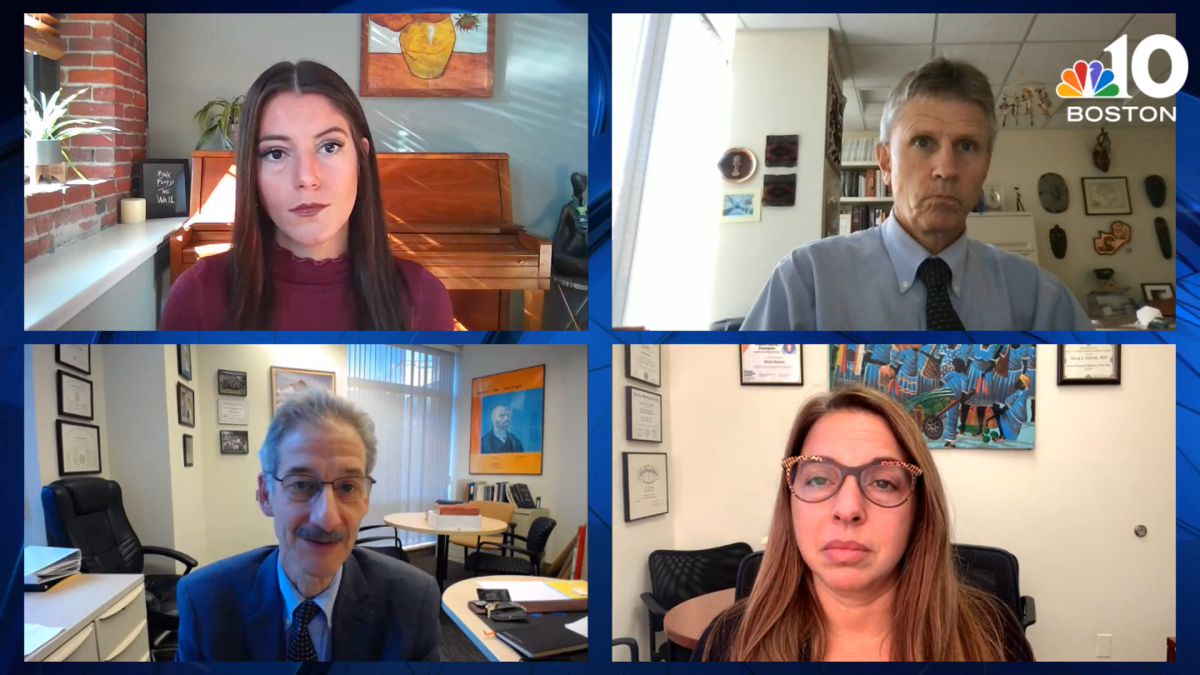
Three top Boston doctors talk about travel now that the U.S. has lifted international restrictions, holiday guidance and home COVID tests on NBC10 Boston’s weekly “COVID Q&A” series.
With some businesses and events requiring negative COVID tests and people using them as an added safety measure for pandemic gatherings, NBC10 Boston asked local doctors how accurate the at-home kits are.
There are a number of at-home options now available. But concerns surfaced in recent months after some tests were recalled due to false-positive results.
The FDA issued an alert last month about the potential for false-positive results with some home COVID-19 tests produced by Ellume. The FDA recalled more than 2 million at-home tests due to a manufacturing defect.
Top Boston doctors Tuesday gave their thoughts on the matter during the weekly series, "COVID Q&A."
Get Boston local news, weather forecasts, lifestyle and entertainment stories to your inbox. Sign up for NBC Boston’s newsletters.
How accurate are at-home COVID tests?
Home kits, which rely on antigen testing, are not as accurate as the PCR tests done in hospitals and at testing sites, but they have the advantage of giving results within minutes instead of days.
The tests are useful "in the appropriate setting," according to Dr. Daniel Kuritzkes of Brigham and Women's Hospital.
"They are best used for detecting COVID-19 in somebody who has symptoms of COVID-19. They're not great tests for testing asymptomatic people," he said. "There can be false positives, which is why I worry about them in airports, but a negative test is not a guarantee that you're not carrying the virus."
Home tests will miss some infections and in rare cases mistakenly indicate an infection. One popular test misses around 15 out of 100 infections — these are called “false negatives” — and gives a false positive result in about 1 in 100 people who aren’t infected.
The antigen tests are effective for people who are symptomatic or those who are late in the pre-symptomatic phase when there is a high level of virus in the system, Boston Medical Center's Dr. David Hamer explained.
"But in somebody who's asymptomatic, who's maybe very early or very late in their course, they miss a lot of cases," he said. "They have a very narrow a role, with a very narrow focus to detect people that are probably fairly high-risk in terms of potential transmission. But there are major limitations."
Can at-home COVID tests make holiday gatherings safer?
Dr. Shira Doron of Tufts Medical Center said she is fielding this question frequently from her patients.
"The question that I get is, 'Should I use at-home tests for my holiday gathering?' And, you know, that's not a straightforward question," she said. "They have their limitations, but in a setting where you were otherwise going to do no test, obviously they can add some measure of safety."
The answer often depends on the type of gathering, Doron explained, which includes whether the people attending are fully vaccinated, unvaccinated and immunocompromised.
"It's very tricky. It's a very tricky discussion," she said.
More from COVID Q&A
A panel of Boston-based doctors talking about everything related to the COVID-19 pandemic.